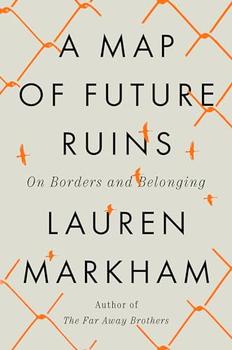Summary | Excerpt | Reviews | Beyond the book | Read-Alikes | Genres & Themes | Author Bio

A Collective Refugee Memoir
by Kao Kalia YangResettled refugees are mostly invisible. Their needs are rarely publicized and their struggles are often marginalized, if they are given attention at all. Somewhere in the Unknown World: A Collective Refugee Memoir introduces African, Asian and European refugees who have settled in Minnesota. It is a tender collection of stories, and while saturated with despair, the individual accounts of courage and perseverance are riveting. And complex. Leaving a country you love is an intricate and painful affair.
The collection is authored by Kao Kalia Yang, who was once a refugee herself. She lived in a camp in Thailand before Minnesota. Though the stories are written by Yang, each is attributed to the person who told it. The accounts she has gathered are ones of escape and resettlement from her family and friends. This is a unique book in that the accounts read like short stories. There is not much background information regarding the political situations in individual countries, as the focus is on the refugees' personal and emotional reactions to their own experiences. Yang writes, "I hope that the stories in this book will…teach you the incredible strength of the human heart."
In "The Strongest Love Story," however, it feels like the heart is broken in half. Which children do you take with you and who do you leave behind? When Awo Ahmed was two years old and her mother Maryam was pregnant for the fourth time, the family decided to leave Mogadishu in Somalia because of the war there. Maryam took the children — Awo and her two brothers — to Kenya temporarily while her husband moved to his home village. Intermittently, her husband would visit Kenya to see Maryam and the children, particularly the new baby Ayan. On one such visit, Maryam became pregnant with Sared, another daughter. Because Ayan and Sared had not been born when the family's resettlement refugee paperwork was filed, Maryam contemplated staying in Kenya. She couldn't bear the thought of leaving her babies but realized her older three children, including Awo, needed a better life. And so Maryam began anew in Minnesota while mourning the daughters she left behind with her mother.
"When the Rebels Attacked" is a dramatic piece of writing. Siah Borzie recounts a terrifying experience when trying to buy diapers. A Liberian freedom fighter accosted her, saying, "I feel like killing you." But instead, he took her into an abandoned office, and then a dark room, to terrorize her. All she could think of was her baby and death. Surviving that terror didn't shake Siah's fear, though. It only enhanced it. And for good reason. One afternoon, teenage rebels entered her house as she was preparing lunch for her children. They forced her to flee into the bush.
In Yang's collection, refugees like these share the worst moments in their lives. Her elegant prose humanizes their experiences of loss and gain, suffering and freedom. I was struck by their innocence, optimism and resilience. Even during trauma, there are tiny granules of hopefulness in the stories, an understanding that the world bends towards justice and that they will be saved. As a rose grows in concrete, there are kindnesses, such as when a family takes in another family and shares what they have. "People are still good. This is why faith matters," Borzie says.
The devastating stories are gifted and lyrical. Kaw Thaw says, "When my oldest sister drowned, in a nameless river, on a day that I would forget if I could, I experienced death for the first time: to leave with no goodbyes." For refugees, the art of "no goodbyes" is the price for desiring freedom. They leave in a hurry, and in the cloak of darkness hope for a better life in a strange and romantic land.
In "Officially Unconfirmed," Michael Tesfay recounts witnessing carnage in Eritrea, shortly after Christmas. A heap of bodies blocked the street. Throats were twisted shut with piano string. Rheumy eyes were silent and eerie. Michael escaped and ended up in a Sudanese refugee camp, where he witnessed the opposite of the previous scene: doctors saving the lives of the sick, starved and tortured. Accustomed to death in one part of the world and grace in another, Tesfay carries the words of his grandmother, who told him, "If you go, you will live for me."
Somewhere In the Unknown World: A Collective Refugee Memoir is a reference point for understanding issues facing refugees. It answers the reflexive question, "Why are you here with us?" Because of war is the simplest answer. So children can have a brighter future. The collection, perhaps on purpose, perhaps not, unearths the darker side of the refugee psyche. Sadness seeps into joy as the storytellers are haunted by their past and that other world that once belonged to them but is now gone.
![]() This review
first ran in the November 18, 2020
issue of BookBrowse Recommends.
This review
first ran in the November 18, 2020
issue of BookBrowse Recommends.

If you liked Somewhere in the Unknown World, try these:

by Jason De León
Published 2025
An intense, intimate and first-of-its-kind look at the world of human smuggling in Latin America, by a MacArthur "genius" grant winner and anthropologist with unprecedented access

by Lauren Markham
Published 2024
A mesmerizing, trailblazing synthesis of reporting, history, memoir, and essay.
He who opens a door, closes a prison
Click Here to find out who said this, as well as discovering other famous literary quotes!
Your guide toexceptional books
BookBrowse seeks out and recommends the best in contemporary fiction and nonfiction—books that not only engage and entertain but also deepen our understanding of ourselves and the world around us.